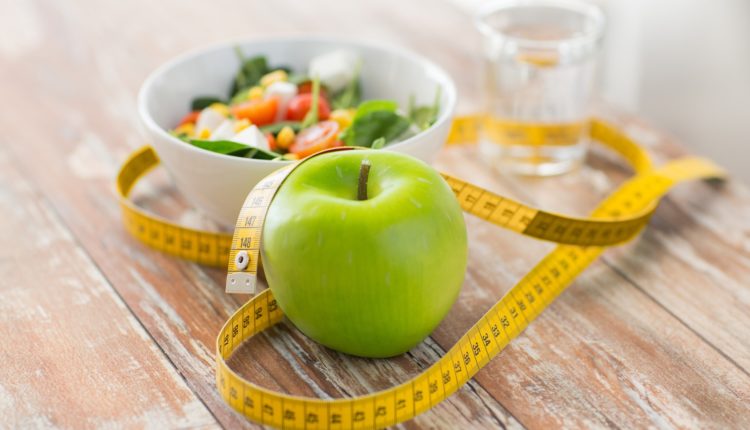Healthy Ways to Gain Weight If You’re Underweight
Weight loss is a serious issue in the United States. Consumers constantly see advertisements and news reports on trendy diets, flashy products, and magic pills promising to help them lose weight.
Given that the ongoing “battle of the bulge” is front and center for so many people, being too thin may seem like a good problem to have. But the reality is that being underweight can cause health problems.
Path to improved wellness
Fat has a bad reputation for causing people to be overweight and obese. However, not all fat is bad. In fact, breaking down and storing energy (calories) as fat is good. It’s just one of the many ways the body uses food to function, heal, and grow.
Stored energy from fat helps you get through a strenuous job or workout. It plays a key role in brain development, and in preventing inflammation (swelling) and blood clots. Fat contributes to healthy hair and skin, as well.
Eating junk food may result in weight gain. However, it will not satisfy the nutrition your body needs. Even if the fat, sugar, and salt in junk food doesn’t result as extra weight, it can still harm your body. For a healthy weight gain, the following tips can help:
- Add healthy calories : You don’t need to drastically change your diet. You can increase calories by adding nut or seed toppings, cheese, and healthy side dishes. Try almonds, sunflower seeds, fruit, or whole-grain, wheat toast.
- Go nutrient dense : Instead of eating empty calories and junk food, eat foods that are rich in nutrients. Consider high-protein, meats, which can help you to build muscle. Also, choose nutritious carbohydrates, such as brown rice and other whole grains. This helps ensure your body is receiving as much nourishment as possible, even if you’re dealing with a reduced appetite.
- Snack away : Enjoy snacks that contain plenty of protein and healthy carbohydrates. Consider options like trail mix, protein bars or drinks, and crackers with hummus or peanut butter. Also, enjoy snacks that contain “good fats,” which are important for a healthy heart. Examples include nuts and avocados.
- Eat mini-meals : If you’re struggling with a poor appetite, due to medical or emotional issues, eating large amounts of food may not seem appealing. Consider eating smaller meals throughout the day to increase your calorie intake.
- Bulk up : While too much Aerobic exercise will burn calories and work against your weight goal, strength training can help. This includes weightlifting or yoga. You gain weight by building muscle.
Before beginning a weight gain program, talk to your doctor. Being underweight may be due to an underlying health problem. It won’t be corrected by diet changes. Your doctor will be able to help you track your progress. He or she will make sure that healthy changes are taking place.
Things to consider
People who are underweight typically are not getting enough calories to fuel their bodies. Often, they are also suffering from malnutrition. Malnutrition means you are not taking in enough vitamins and minerals from your food. If you’re underweight, you may be at risk for the following health issues:
-
Delayed growth and development. This is especially true in children and teens, whose bodies need plenty of nutrients to grow and stay healthy.

-
Fragile bones. A deficiency in vitamin D and calcium, along with low body weight, can lead to weak bones and osteoporosis.
-
Weakened immune system. When you don’t get enough nutrients, your body cannot store energy. This makes it difficult to fight illness. It may also be difficult for your immune system to recover after being sick.
-
Anemia. This condition can be caused by not having enough of the vitamins iron, foliate, and B12. This can cause dizziness, fatigue and headache.
-
Fertility issues. In women, low body weight can lead to irregular periods, lack of periods, and infertility.
-
Hair loss. Low body weight can cause hair to thin and fall out easily. It also can cause dry, thin skin and health issues with teeth and gums.
Many underweight people are physically healthy. Low body weight is due to a variety of causes, including:
- Genetics. If you’ve been thin since high school and it runs in your family, it’s likely that you were born with a higher-than-usual metabolism. You also may have a naturally small appetite.
- High physical activity. If you’re an athlete, you probably know that frequent workouts can affect your body weight. However, high physical activity also can be a part of an active job or an energetic personality. If you’re on your feet a lot, you may burn more calories than people who are more sedentary (inactive).
- Illness. Being sick can affect your appetite and your body’s ability to use and store food. If you’ve recently lost a lot of weight without trying, it may be a sign of disease, such as thyroid problems, diabetes, digestive diseases, or even cancer. Talk to your doctor about sudden weight loss.
- Medicines. Certain prescription medicines can cause nausea and weight loss. Some treatments, such as chemotherapy, can reduce appetite and worsen weight loss from illness.
- Psychological issues. Our mental well being affects every part of our lives. Things like stress and depression can disrupt healthy eating habits. Severe body image fears and distortions can lead to eating disorders. If you’re suffering from damaging emotional issues, talk to your doctor. He or she can help you get the care, assistance, or counseling you may need.
Questions to ask your doctor
- How do I gain weight if I’m not hungry?
- Is being underweight more serious for babies?
- What are some affordable, healthy foods to help me gain weight?
- Should I stop exercising if I am underweight?
- Should I stop taking my prescription medicine if I am underweight?


